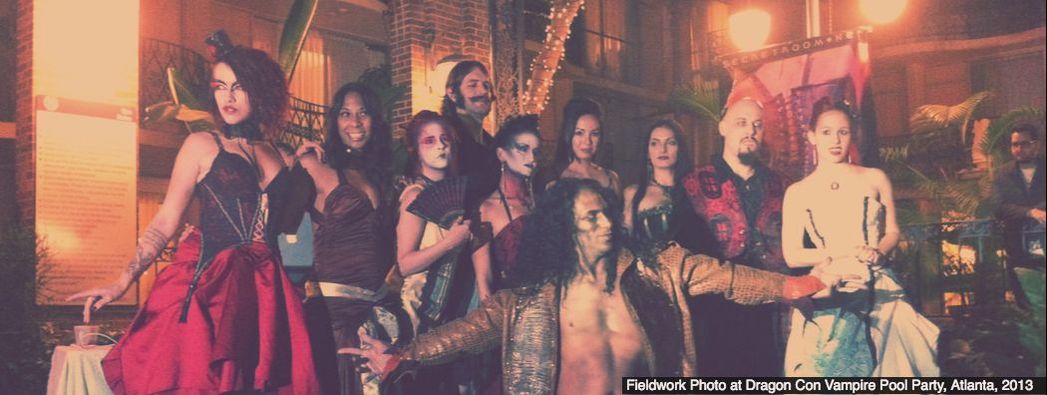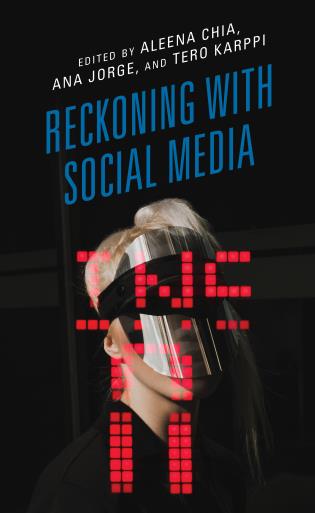research
How are ideas about creativity, automation, and personhood shaped by media technologies? I use ethnographic and textual methods to research these connections—and their stratifications across race and class—in the Game Industry, Consciousness Hacking, and Social Media Disconnection. My current research project "Automation in the Creative Workplace: Stratification of Artistic Labour in British Digital Game Production" is funded by the BA/Leverhulme Small Research Grant to interview UK game artists about how automation impacts the creative process and equality, diversity, and inclusion in the workplace.
- Chia, A. (2022) “The Artist and the Automaton in Digital Game Production.” OA Download: Convergence. 28(2): 389-412
- Chia A. (2022) "The Metaverse, but not the way you think: Game engines and automation beyond game development." OA Download: Critical Studies in Media Communication. 39(3): 191-200.
The work of games & play
|
The desire to “do what you love” energizes employment and engagement in creative industries such as digital gaming yet drains hobbyists and aspirants by normalizing expectations to sacrifice job security for passionate work. This article investigates how individuals regulate their aspirations through taken-for-granted trade-offs between vocational compromise and compensation. Multi-sited ethnographic fieldwork with players at fan conventions and recruitment events in North America suggests a moral calculus of corruption and sublimation between passion and profit, which can be traced back to industrialization’s cleavage of labor from recreation and its institution of hobbies as productive leisure. Building on existing research about waged labor’s imagined denigration of hobbies, this argument juxtaposes the passion that is corruptible by work and the passion that promises to sublimate work from drudgery. Interrogating this confounding logic cultivates counter-narratives for purposeful livelihoods beyond industrial-era notions of productivity and neoliberal notions of passion.
|
Wellness & Dream hacking
SCMS Panel: Networks & Neuropolitics, March 20, 2021:
|
In 2014, engineers and entrepreneurs began meeting up in San Francisco to explore how virtual reality and lucid dreaming headsets, transcranial magnetic stimulation and biofeedback meditation wearables stimulate mindfulness and altered mental states. They called these practices “consciousness hacking” and referred to the use and design of these wearables as a movement. Unlike Quantified Self enthusiasts who combine bodily self-tracking and population analytics to optimize health and productivity, these ‘hackers’ use data-driven stimulation of their bodies to gain immediacy to their consciousness. By turning perception inward, they attempt to transform their minds into the ultimate medium for purposeful dreams, flow states, positive emotions, and secular revelations about the self, unconscious, and nature of experience. This paper uses media archaeology to examine how discursive and material techno-spiritual practices around consciousness hacking reconciles New Age assumptions about the sacred essence of the self with biopolitical assumptions about the self as a database to be rationalized. By probing historical antecedents of datalogical fantasies, this project demonstrates the value of critical inquiry into data cultures, its models and mechanisms for the human sensorium, and its metaphors that we live by.
Social Media Disconnection |
Once celebrated for connecting people and circulating ideas, social media are facing mounting criticisms about their anticompetitive reach, addictive design, and toxicity to democracy. Known cumulatively as the “techlash,” journalists, users, and politicians are asking social media platforms to account for being too big, too engaging, too unruly. In the age of the techlash, strategies to regulate how platforms operate technically, economically, and legally, are often stacked against individual tactics to manage the effects of social media by disconnecting from them. These disconnection practices—from restricting screen time and detoxing from device use, to deleting apps and accounts—often reinforce rather than confront the ways social media organise attention, everyday life, and society. Reckoning with Social Media challenges the prevailing critique of social media that pits small gestures against big changes, that either celebrates personal transformation or champions structural reformation. This edited volume reframes evaluative claims about disconnection practices as either restorative or reformative of current social media systems by beginning where other studies conclude: the ambivalence, commodification, and complicity of separating from social media.
- Chia, A., Jorge, A. and Karppi, T. eds. (2022) Reckoning with Social Media. Rowman & Littlefield.
- Chia, A. and Beattie, A. (2022) “Ethics and Experimentation in The Light Phone and Google Wellbeing.” In Chia, A., Jorge, A. and Karppi, T, (Eds) Reckoning with Social Media. Rowman & Littlefield.
- Karppi, T. Chia, A., Lampinen, A., Feldman, Z., Dieter, M., Ferreira, P. and Beattie, A. (2020) "Disconnection: Designs and Desires." AoIR Selected Papers of Internet Research.




